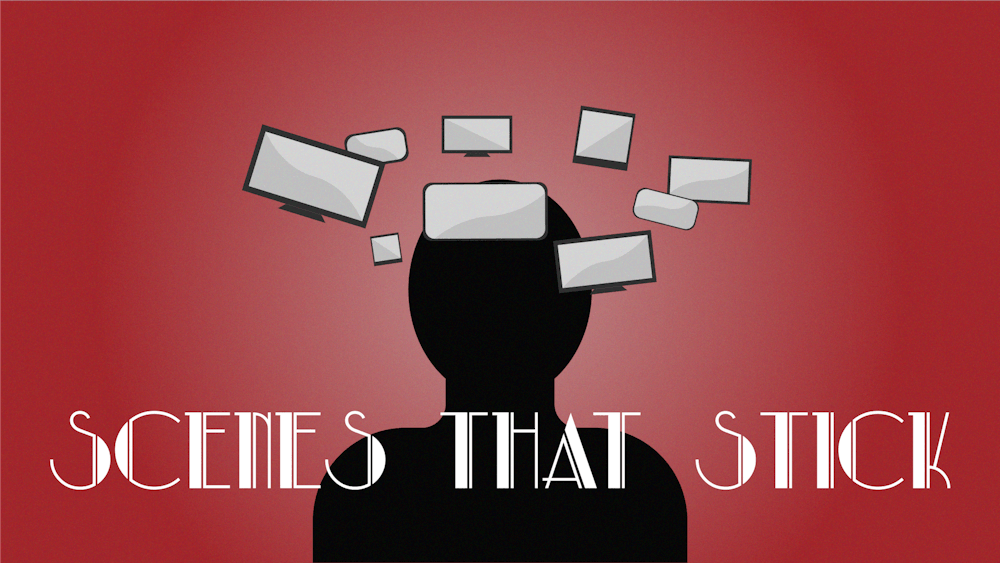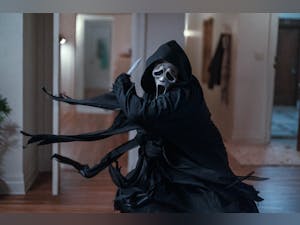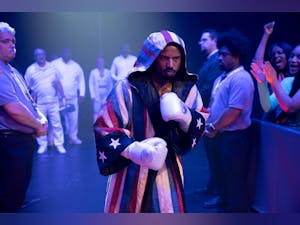From: Silver Screen
Scenes that Stick: David Lynch’s surreal breakdown of Hollywood politics in ‘Mulholland Drive’

Throughout his career, David Lynch has critiqued and commented on many facets of American society. In “Mulholland Drive,” Lynch analyzes Hollywood’s politics through the lead character Diane’s dreamstate.
Lynch uses his characteristic surrealism and recreates the feeling of a dream onscreen in “Mulholland Drive” to tell the story of Diane Selwin (Naomi Watts), a struggling actress. Originally introduced to the audience as Betty Elms, Watts plays two portrayals of the same character, one idyllically crafted and one brutally real.
The first half of the film tells the story of the life Diane wants. In this dream, Betty, an aspiring actress who lives the life Diane believes she deserves, has just moved to Los Angeles and has a big audition days away. Betty soon meets Rita (Laura Harring), a woman suffering from amnesia after a car crash.
Amidst this plot is the story of Adam Kesher (Justin Theroux), a director struggling to re-cast the lead actress in his movie. Nameless Hollywood executives are controlling his film’s casting, insisting on an actress named Camilla Rhodes (Melissa George) for the part. This dreamed subplot is directly tied to Diane’s real life, as Camilla, Rita’s real-life equivalent also played by Harring, has been cast over Diane for a film outside of her dream. This predetermined casting choice in Diane’s dream represents her mentally-concocted attempts to justify her real-life failure to secure the role. In her mind, she is not responsible for her failed audition, but merely a victim of power structures conspiring against her.
Lynch uses the breakdown of Diane’s subconscious representation of Hollywood as a catalyst for his critique. Although many scenes display the eerie control Hollywood has over Kesher’s artistic decisions and personal life, none display it better than Camilla’s audition in Diane’s dream.
After Betty auditions for a separate film that’s sure to fail, two producers take her to the audition for Kesher’s new film. The scene opens with an actress singing Connie Stevens’s “Sixteen Reasons.” The camera pans out on the singing and reveals a big budget film set. Betty and the producers walk in, immediately greeted with handshakes and introductions. Betty looks on with naive optimism at the spectacle of Hollywood.
In a mysterious moment, Adam turns around slowly, locking eyes with Betty with a confused, intrigued look on his face. The camera zooms towards Betty as she stands frozen, concerned and wary. This connection between them highlights the difference in their relationships with Hollywood: Betty’s steady cheerfulness is abruptly interrupted by Adam’s frustration with his forced hand.
When the auditioning actress finishes her performance, Adam walks over to congratulate her. “I love you,” Adam says, “but there’s no way that they’re gonna let me cast this thing until I’ve seen everyone.” He is then informed the next girl auditioning is Rhodes. Adam pauses in silence and fear as he recognizes her name.
Moments into her audition, Adam asks for a crew member. “This is the girl,” Adam says. “Excellent choice sir,” a third man who is looming over the two says ominously. This scene conveys Adam’s lack of control, as well as the seemingly passive, but genuinely fierce control Hollywood has over him.
As a long-time proponent of limiting producers’ wills over in his works, Lynch uses “Mulholland Drive” to expertly critique the politics and mind games existing within Hollywood.
alfiepritchard@theeagleonline.com




